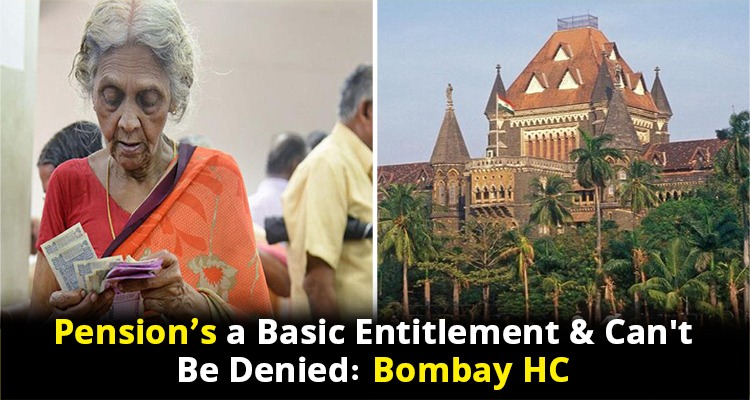
The Bombay High Court emphasized that pension is a basic entitlement and retired employees must not be denied this crucial payment, which serves as their primary source of livelihood.
The court criticized the Maharashtra government for withholding the dues of a man for over two years after his retirement, deeming such a situation “totally unconscionable.”
A division bench comprising Justices G S Kulkarni and Jitendra Jain was hearing a petition filed by Jayram More, a former ‘hamal’ (coolie) at Savitribai Phule Pune University since 1983. Jayram sought a directive for the Maharashtra government to release his pension, asserting that despite the submission of all required documents by the University to the relevant state department, his pension had not been paid for an unreasonable period of two years following his retirement in May 2021.
The court expressed concern over the plight of individuals who retire after years of unblemished service and should not suffer such circumstances, emphasizing that pension is a fundamental entitlement and the mainstay of livelihood.
Referring to a four-decade-old Supreme Court order, the bench rejected the outdated notion that pension is a discretionary and gratuitous payment dependent on the employer’s will. The Supreme Court had decisively ruled that pension is a right governed by rules, not subject to the government’s discretion.
The bench noted that despite numerous cases reaching the court with individuals seeking their pension, the spirit of the Supreme Court order appeared to be forgotten rather than applied.
In prior orders, the high court had observed More’s three-year struggle and directed the government to take immediate steps to release his pension benefits within four weeks. During Tuesday’s hearing, the government informed the bench that More’s pension, along with arrears, had been released and received by him.
Accepting the government’s statement, the bench disposed of the petition but emphasized that More should receive his monthly pension regularly without default in the future. The court highlighted that this case underscores the importance of government officers promptly addressing staff grievances to avoid the need for such individuals to approach the courts. The bench urged a willingness on the part of state government officers to resolve such issues at the departmental level without requiring adjudication.




